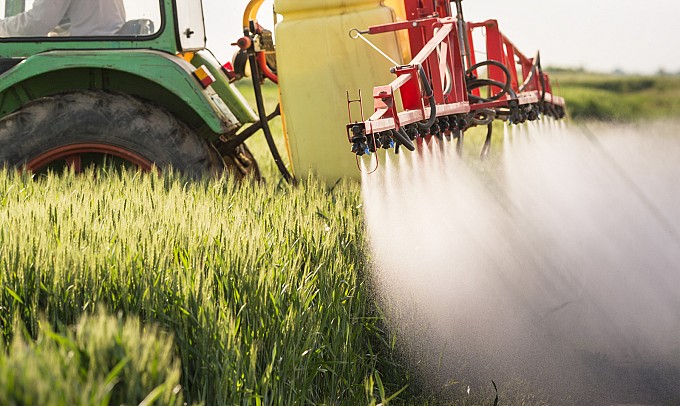
FAO (Food and Agriculture Organization of the United Nations) specialists suggested that farmers of the Turkestan region use modern methods of combating plant diseases, which will reduce the use of hazardous drugs by up to 60%, and at some stages, abandon fertilizers. The training “Pesticide Life Cycle Management and Disposal of Pesticides Containing POPs (Persistent Organic Pollutants) in the Countries of Central Asia and Turkey” was devoted to this topic, the FAO Office in Kazakhstan reported.
The FAO noted that along with global warming, the species composition of pests is changing, and new plant diseases are appearing. For example, in the Turkestan region, fruit crops on an area of 50 thousand hectares were significantly damaged due to bacterial burn. Plants are also susceptible to tomato moth and tomato fruit wrinkling. The brown marmorated bug and others pose a new threat.
Meanwhile, experts spoke about environmentally friendly methods of combating diseases. Integrated Plant Protection (IPM) is an FAO tool that will help control the spread of dangerous and quarantine pests, promote the production of environmentally friendly and competitive agricultural products, and reduce the consumption of pesticides. IPM methods are widely used in many countries to maintain clean soils, protect biodiversity and public health.
In 2023, FAO conducted trials in Kazakhstan in apple orchards, tomatoes and cabbage. Experience has shown that, despite a significant reduction in pesticide use, better results were obtained compared to sites where pesticides were applied the old way. There was no need to increase costs. If conventional practice required more than 20 treatments per season, then with IPM - only 6. Economic efficiency was more than 80%. At the same time, a toxicological assessment showed the absence of traces of chemicals in the soil and fruits, which indicates the “purity” of the grown products.
“The growing uncontrolled use of pesticides in the agricultural sector of Kazakhstan causes serious concern among scientists at the Kazakh Research Institute of Plant Protection and Quarantine. It is paradoxical, when many countries are actively moving to environmentally friendly plant protection technologies, at this time in Kazakhstan there is a stereotype that plant protection from pests is only treatment with highly toxic pesticides. But this is a completely wrong approach. To preserve our soil and ecology, to develop safe agriculture, it is necessary to optimize the dosage of fertilizers and the period of treatment. The choice of alternatives to especially dangerous pesticides is also important, this is the use of pesticides of hazard class 3-4, the use of biofungicides and bioinsecticides,” noted Zhanna Isina, head of the plant quarantine department of the Kazakh Research Institute of Plant Protection and Quarantine named after. Zh. Zhiembaeva.
Another important part of the training was devoted to the problem of using empty pesticide containers. As noted by the FAO, many regions of Kazakhstan still have not built a system for collecting and processing such waste. As a result, pesticide containers end up in landfills. Pesticide residues can spill and seep into soil and water bodies, polluting the environment. It is even more dangerous when farmers use containers at home.
Farmers were also trained on effective and safe spraying methods. FAO intends to conduct similar training sessions in all regions of Kazakhstan in the near future.